On July 18, 2025, Khon Kaen University hosted a strategic communication and planning event to present the university’s Strategic Management Plan for 2026–2029 and the Annual Operational Plan for Fiscal Year 2026. The session was presided over by Associate Professor Charnchai Panthongviriyakul, M.D., President of KKU, and joined by Assistant Professor Tala Thammaroj, M.D., Vice President for Administration, along with other vice presidents, executives, faculty members, and personnel from across the university. The event took place at the Sarasin Conference Room and was also streamed via Zoom to a large number of participants.
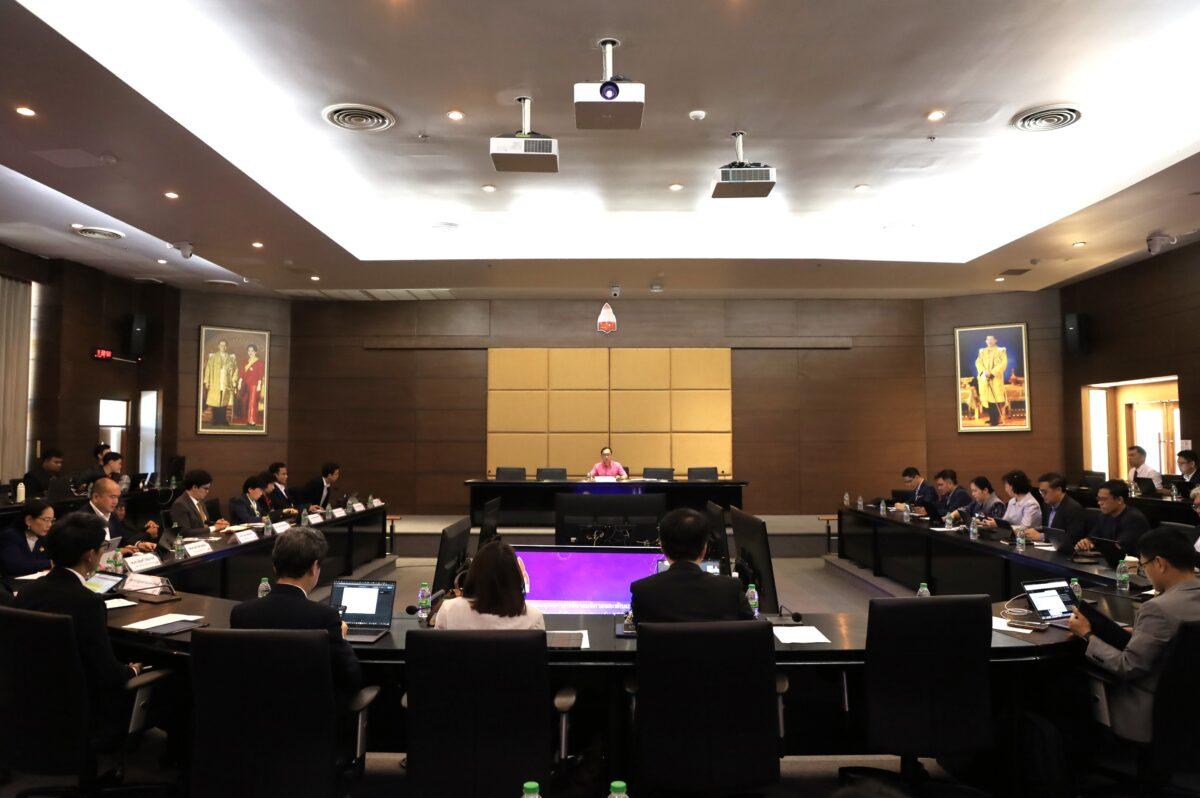
This forum marked a crucial step in implementing the newly approved strategic plan, ensuring that all personnel understand and actively contribute to driving KKU toward its vision of becoming a world-class research and development university.
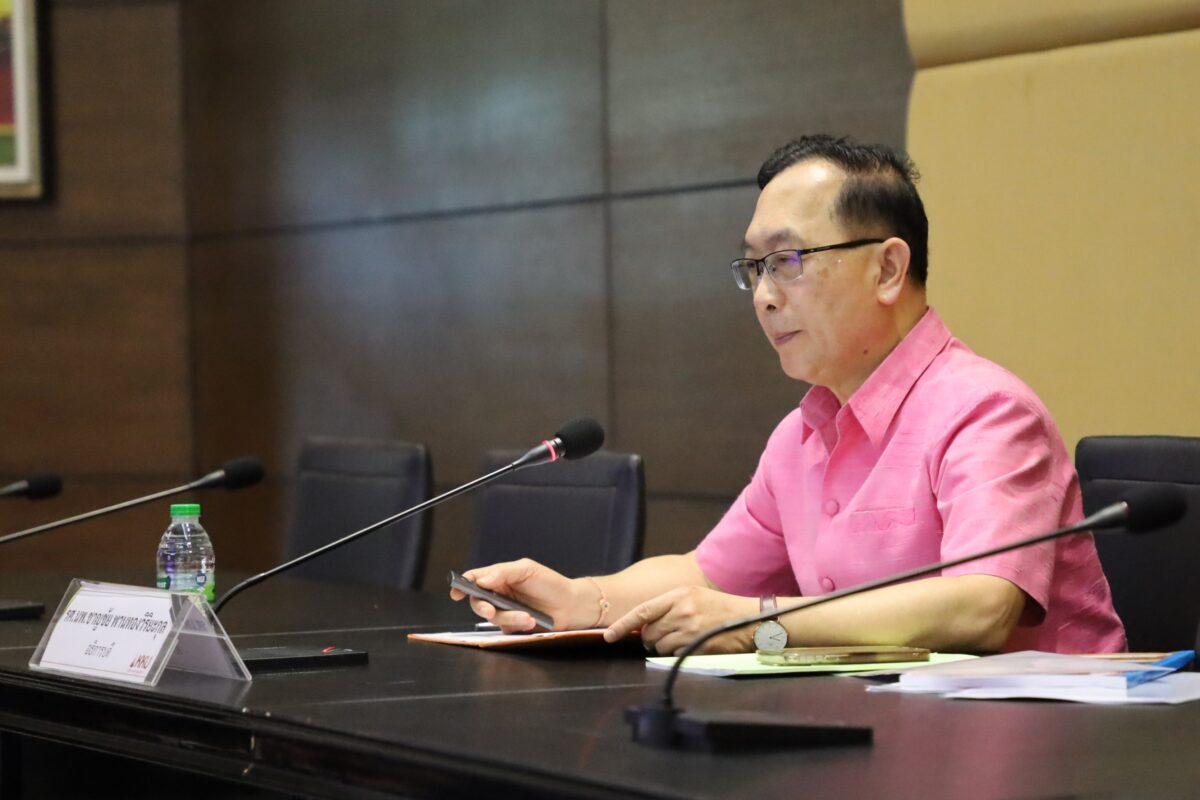
President Charnchai emphasized that the 2026–2029 strategy aligns with national development policies, the 2026 fiscal budget allocation strategy, and both domestic and global trends. It also integrates future-oriented planning based on internal and external analyses. The new strategic framework is built upon four strategic pillars, eleven strategic themes, forty-six initiatives/projects, and seventy-seven key outcomes (OKRs).
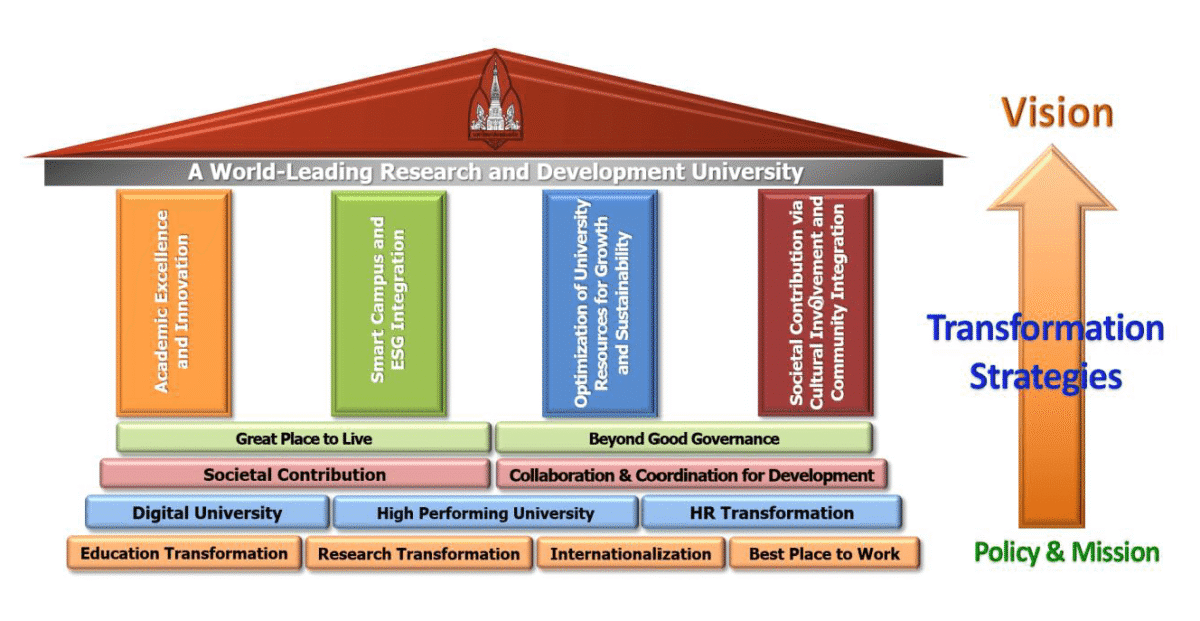
The first pillar, Academic Excellence and Innovation, includes strategies for education transformation, research transformation, internationalization, and creating a desirable workplace (Best Place to Work). These focus areas aim to develop new “New S-curve” curricula that promote lifelong learning and research grounded in regional challenges—particularly within the bioeconomy and the Esan 4.0 agenda, to help drive development in the Northeastern Special Economic Zone (New Isan).
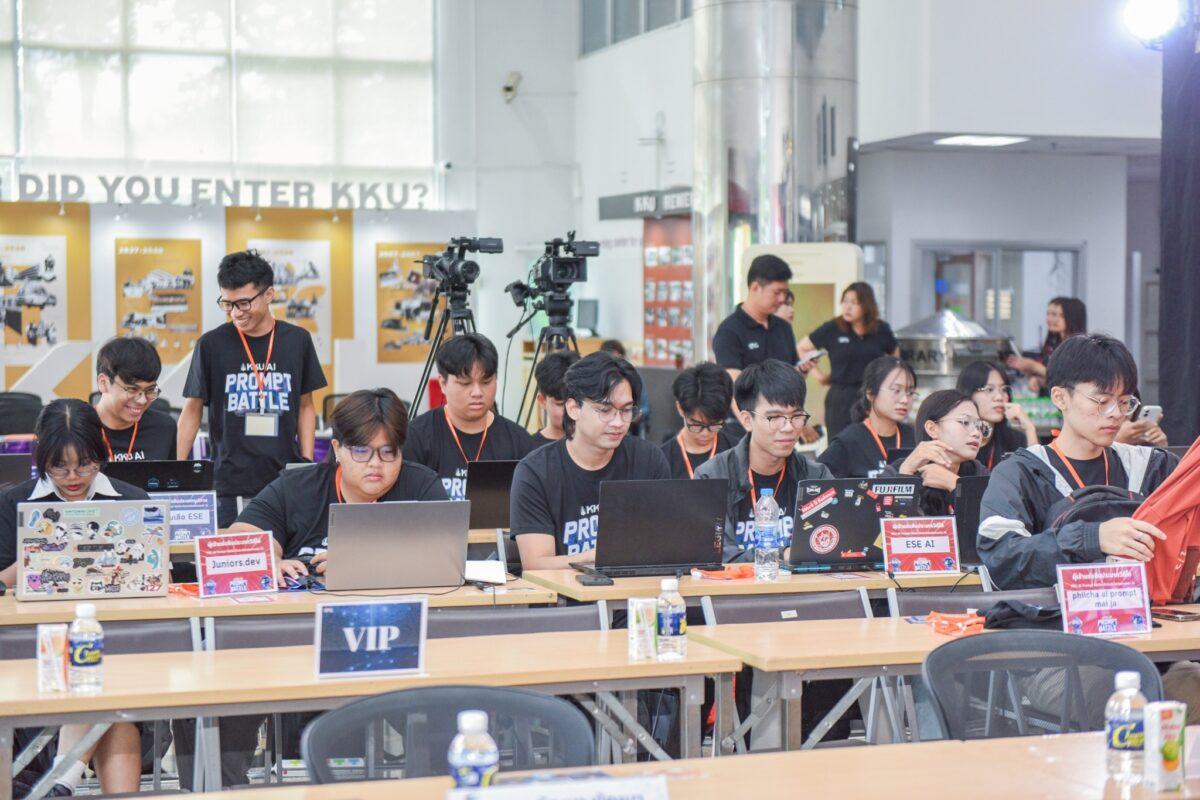
The second pillar, Smart Campus and ESG Integration, encompasses strategies to establish KKU as both a Great Place to Live and a university governed by Beyond Good Governance. This involves positioning KKU as a green university with smart infrastructure that enhances safety and well-being, while promoting advanced governance practices across the institution.
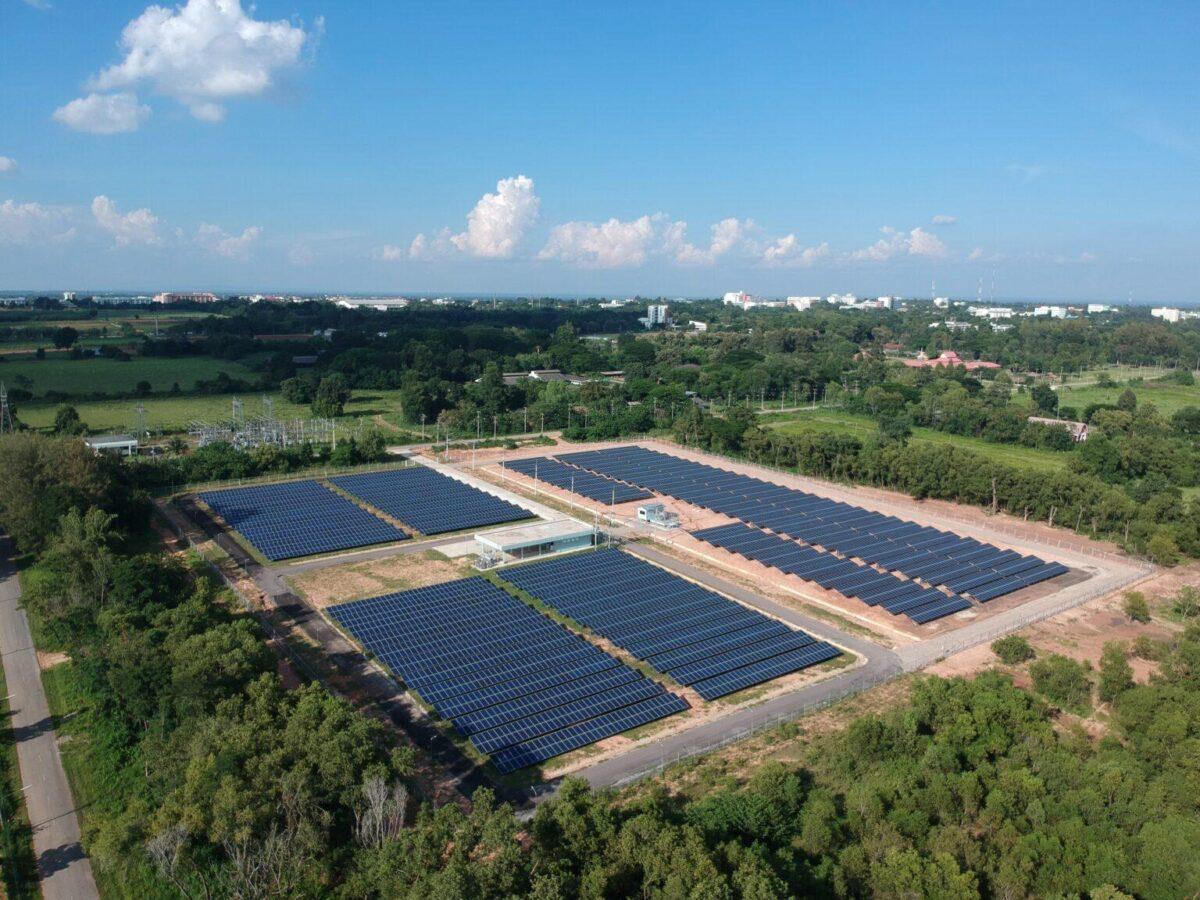
The third pillar, Optimization of University Resources for Growth and Sustainability, focuses on transforming human resource management, building a high-performing university, and embracing the role of a digital university. This pillar emphasizes digital transformation, the application of AI in operations, and sustainable asset management.
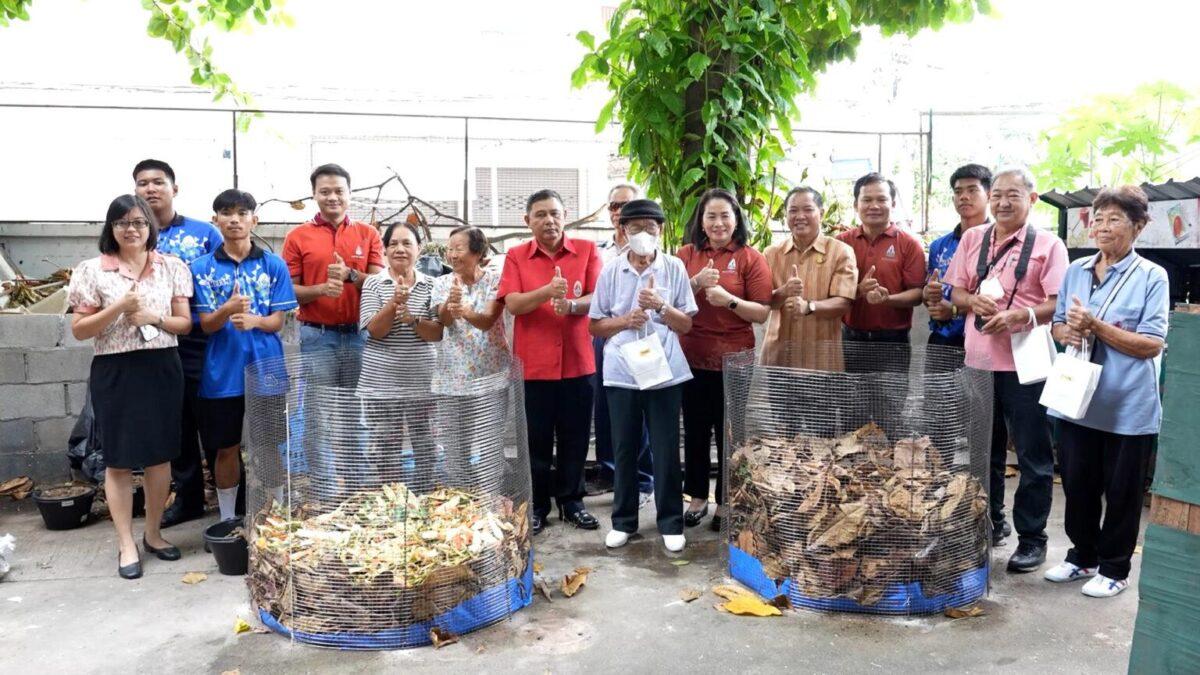
The fourth pillar, Societal Contribution via Cultural Involvement and Community Integration, emphasizes academic services that generate social value and strategic collaboration for sustainable development. This includes promoting community engagement, supporting creative economies, and preserving Isan cultural heritage to achieve the Sustainable Development Goals (SDGs).
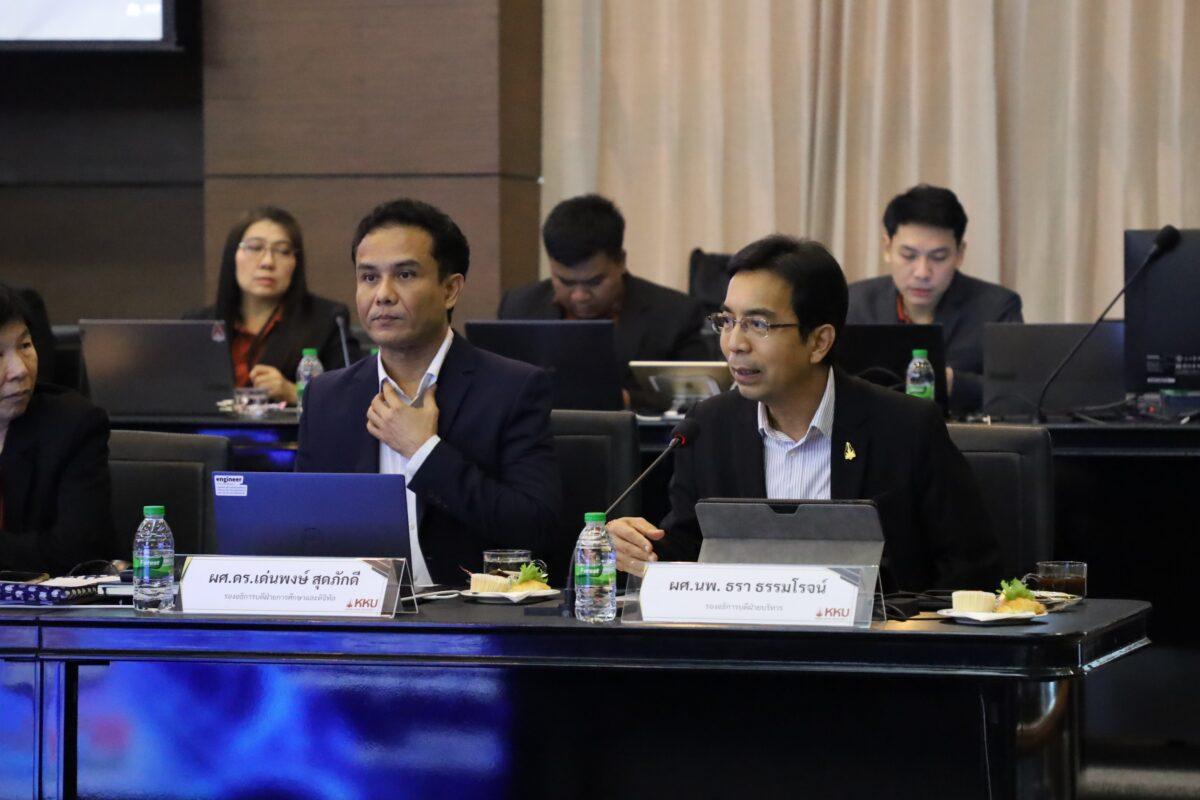
Assistant Professor Tala Thammaroj, M.D., Vice President for Administration explained that the strategic shifts reflect national government directions, policies of the Ministry of Higher Education, Science, Research and Innovation (MHESI), and the University Council. The plan also incorporates outcomes from the recent KKU leadership retreat held in Nong Khai from March 16–18, 2025.
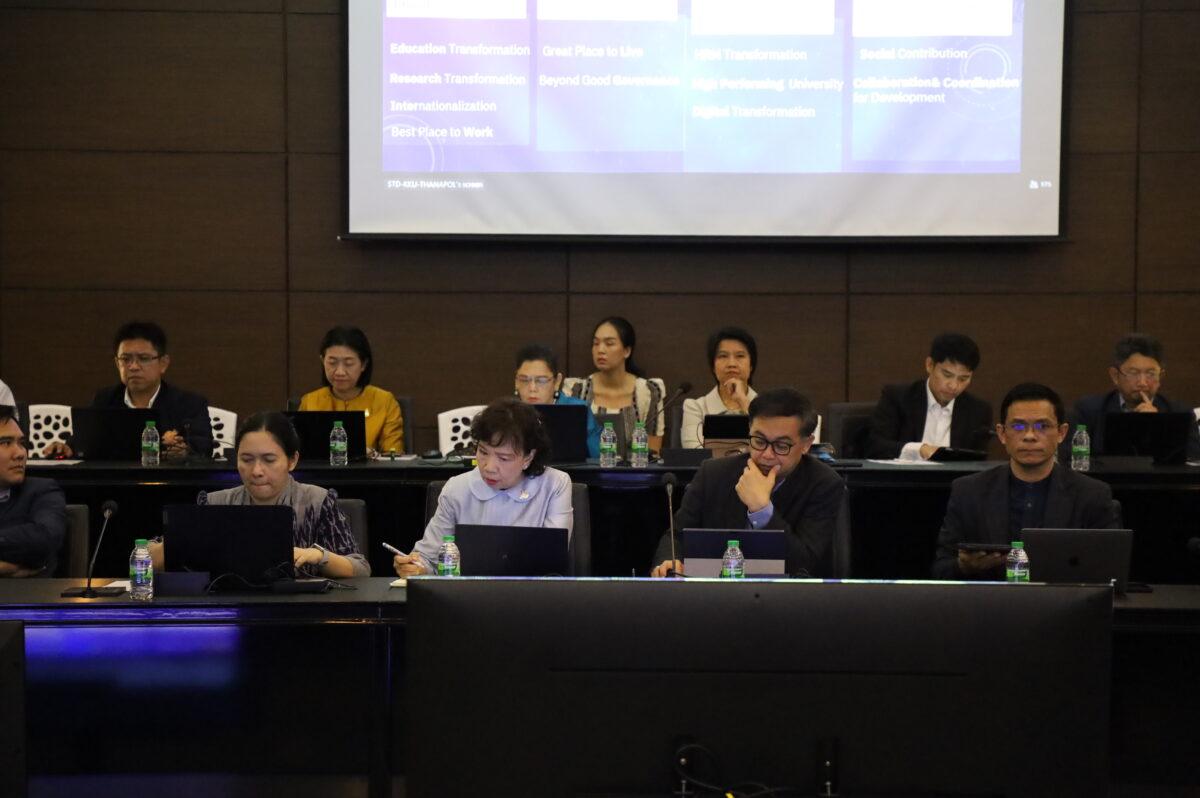
The 2026 Operational Plan is aligned with KKU University Council Policy No. 1286/2025 and was updated to reflect major global and domestic changes. The planning process drew from joint seminars between the Council and KKU executives, with the goal of promoting long-term sustainability for the university, its communities, and the broader society.
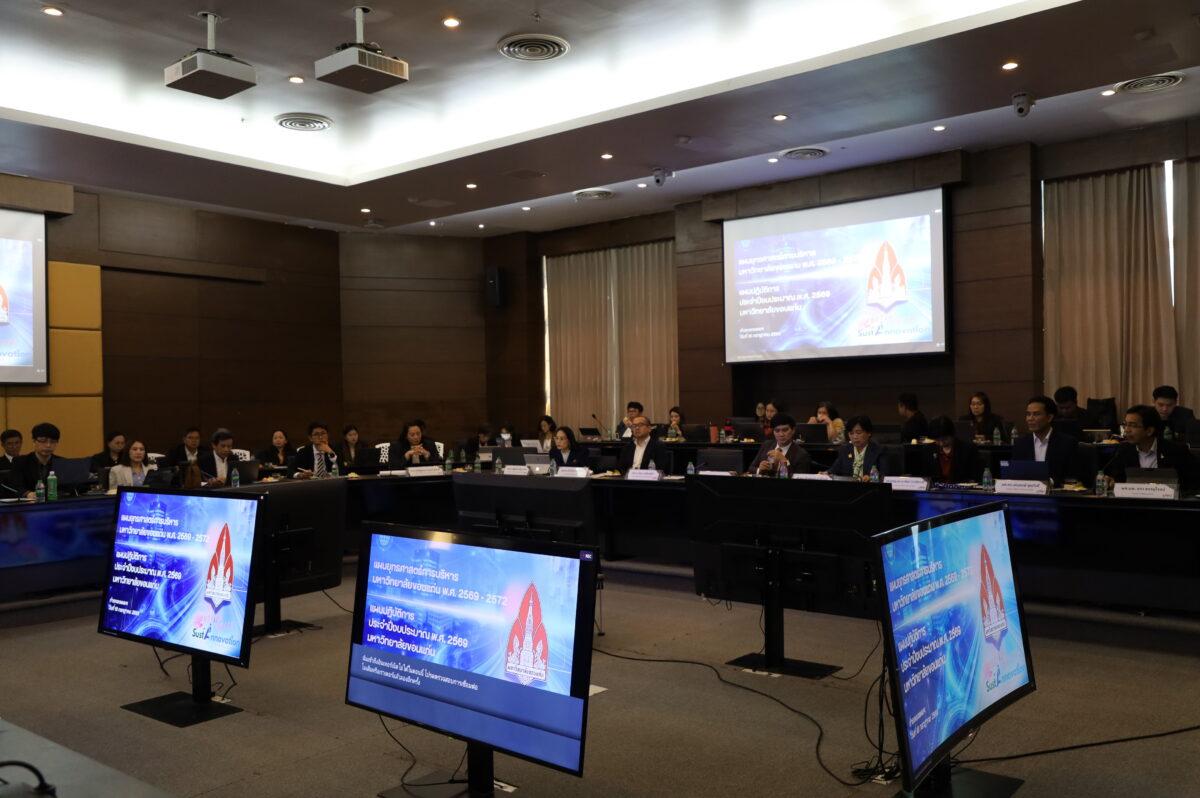
During the meeting, each vice president presented their respective strategic and operational plans for the 2026 fiscal year, covering areas such as academic affairs and digital transformation, international relations, research and innovation, physical and environmental development, enterprise and sustainable development, arts and creative economy, human resources, student affairs and innovation, and legal affairs and communications.
Following the presentations, attendees engaged in breakout group discussions centered on the four main strategic themes: Academic Excellence and Innovation, Smart Campus and ESG Integration, Optimization of University Resources for Growth and Sustainability, and Societal Contribution via Cultural Involvement and Community Integration. These sessions demonstrated the active participation of KKU personnel in shaping and propelling the university toward its strategic goals.
For fiscal year 2026, key program priorities include: transforming education through new S-curve curricula that emphasize lifelong learning; redesigning research to address regional challenges; promoting community-based academic services; enhancing global partnerships to build student and staff capacity; developing a smart and high-performing campus; and deepening community engagement through support for creative industries and cultural preservation in the Northeast.









